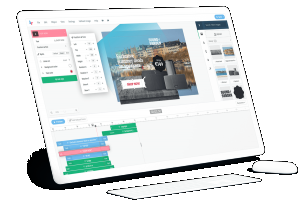How will the in-housing marketing trend affect the travel sector?

A new report commissioned by advertising platform Bannerflow has revealed a vast sum of European companies are bringing their digital advertising operations in house, creating a shift from the agency focused attitudes prominent over the last decade.
Marketers from the travel sector made up a large percentage of respondents of this survey, so how is this shift in attitudes affecting the day to day marketing activity of companies working within the travel sector, and how can in-housing enhance processes within the travel niche specifically?
Attention to detail
Personalisation is one of the biggest opportunities for travel brands in 2019, and it is one aspect of marketing which requires a lot of attention to detail.
Whilst agencies can carry this work out, industry experts who have their time solely dedicated to these projects will be in a better position to tackle the complexities which come with aligning the content creation, marketing automation and brand messaging needed to make personalisation work effectively.
Increased agility
For many of the marketers who took part in the survey, agility was one of the main drivers behind the in-housing movement. It’s easier to be of the moment with your campaigns if you have your creative processes in-house. Brands are able to take action as and when they want on current events and trends.
For travel brands, this ability to react quickly can lead to countless opportunities. Whether this is in a social capacity, reacting to customer questions via Facebook or Twitter, or a PR capacity in which brands can get up to the minute comment from managers and directors about trending travel affairs.
Having in-house resource enables additional flexibility, which can be rarely replicated elsewhere.
Technical expertise
Many opportunities for travel brands in 2019 revolve around emerging technologies. Voice search, augmented reality and programmatic marketing are three areas which have been highlighted as ones to watch this year.
Whilst agencies are a great option for entering these arenas immediately, on a long term basis, it’s essential that this technical expertise is recruited in-house in order to gain a more specialist understanding of how these technologies can be best suited for a travel brand specifically.
Avoiding this could result in a dependence on outside resource which could put you at a disadvantage to competitors.
Cost-saving
Cost-saving is the most popular reason why marketers decided to move operations in-house. Outsourcing work to agencies can be an expensive business, and with a market as volatile as travel, many decide to keep a run a tight ship when it comes to expenditure.
Taking ownership over areas such as media-buying, creative, and optimisation, can result in big savings and, as long as the in-housing process is done right, no drop in quality of output.
CEO of Bannerflow, Nicholas Högberg, commented on these points…
“The travel sector has always been one of the first to adapt to changes in the marketing environment, and it appears it is no different with this apparent shift towards in-housing.
With personalisation, increased agility and technical expertise high up on the list of “wants” for travel brands, in-housing seems like a natural move, and could result in brands enhancing their marketing activity in the coming years.
The rise of in-house marketing in Europe is only just beginning to be analysed and it presents both opportunity and challenge.”
You can download the entire report here – https://inhouse.bannerflow.com/state-of-inhousing-report-2019/

